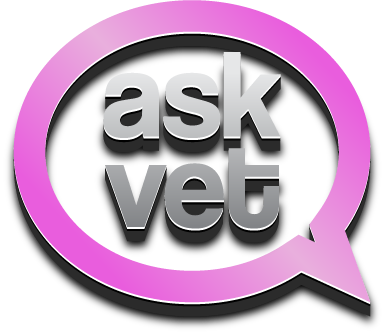How do I know my pet may need dental treatment?
In many ways it is a "hidden" disease as most owners have no idea there is anything going on inside their pet's mouth until they go off their food or a rather nasty smell is breathed on them! Any brown/black/green(!) discolouration of teeth, redness of gums, bleeding, or foul smell could imply disease or infection is present. Your pet may also demonstrate problems eating or drinking, by tossing their head around abnormally when chewing; or may show increased salivation or drooling.What happens during a 'dental'?
Once dental disease is present, sadly your pet will need some form of dental operation under anaesthesia. Why?
Because our pets won't sit and say "ahh" like we do at the dentist, an anaesthetic is required to insert a tube via their mouth to prevent dirty fuilds entering their airway.
A dental operation varies from a simple descale and polish to more complex procedures requiring extractions. If multiple or complex extractions are needed, this can be a very long anaesthetic for the pet even in our experienced hands. Anaesthetics not only carry risks but are costly. The good news is both are avoidable with good preventative care.I want to be a good parent. How do I prevent dental disease?
Your pets are no different to young children. They require your daily attention ideally. Daily home tooth brushing is the best and cheapest protection. Oral gels/foams applied daily directly to the teeth and gums are the next most beneficial.
We have "pet toothbrushes & paste" available in our practice. We are very happy to advise you on brushing etc. We even have clients who have successfully used a child's basic electric tooth brush (we are informed they don’t share it with their human children!)
BEWARE claims that "dentasticks" clean teeth. Most dogs eat these highly calorific treats (not good for overweight pets) far too quickly to have much benefit.
Unfortunately there are no shortcuts to protecting your pets’ teeth. But it will keep them healthy, a pleasure to be near and save you money!
Dentistry
vaccinations
neutering
dentistry
consultation
microchipping
prescription
Parasites
Pre/post operation guide
Home Visits
Question |
Stage 1: Plaque Build Up |
Stage 2: Tartar Creation |
Stage 3: Gingivitis |
Stage 4: Periodontitis |
|---|---|---|---|---|
| What is it? | A clear sticky film of bacteria. | If plaque is left on the tooth for 3-5 days it will calcify. Tartar is made up of mineral and organic components. | Simply it is the inflammation of the gums (gingiva). There can be many causes but tartar build up below the gum line is major cause. | It translates to inflammation around the tooth. It is a VERY serious gum infection that damages both the soft tissue and bone around the teeth. This mostly arises through poor dental hygiene and not taking action at stages 1-3 above. As gingivitis becomes severe gaps appear between teeth and gums allowing bacteria to settle and infect the area. These are irreversible changes to the supporting structures keeping teeth in place meaning your pet will likely have to have teeth removed. |
| Signs of it? | Hard to see but is constantly present. | You will notice this as a yellow/brown substance on the teeth that will get thicker over time if left untreated. | Inflamed bright red/purple gums, bleeding or receding gums, bad breath. | In addition to those of gingivitis you may notice gum bleeding, pus, severe bad breath and even loose teeth. |
| Pain? | At this stage it is neither harmful nor painful. | At first this is not painful but pain will develop as the tartar spreads under the gums. Once tartar is present it becomes a trap for further plaque build up. | Is mildly painful but if left untreated is likely to lead to gum disease, an abscess and/or periodontitis. | This can be very painful but remember our pets are very bad at showing us their pain! |
| Treatment? | Daily brushing will remove this. | Is not possible to remove through brushing. You may well go to a dental hygienist to have yours removed from time to time. A simple dental at your vets can remove this. If your pet is ever having a GA it is worth asking about a simple de-scale to keep costs low and prevent further pain to your loved one. | The only solution is an extensive de-scale at your vets. If you are not proactive in managing this condition it is likely to severely deteriorate and become very painful for your pet and expensive to treat. | Your pet will require surgery to remove bacteria and tartar from the teeth and gums and likely have to extract teeth to prevent further destruction of bone and gums. This is a chronic imflammatory disease requiring good oral hygiene for life. |













